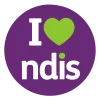What do you want to achieve with the help of your funding? Setting your NDIS goals is one of the most important steps in creating your plan. Increasing independence, building new skills, participating more positively in your community – these are all examples of NDIS goals. Since your NDIS plan and supports are built around these goals, writing clear and well-structured goals can make all the difference in ensuring you receive the right support for your needs. If you’re in the process of choosing your goals or getting ready to set new goals, this guide is for you! We’ll walk you through how to write effective NDIS goals that truly reflect your aspirations and ensure you receive the support you deserve.
1. Think About What Matters Most to You
Before writing your goals, take some time to reflect on your life and the areas where you need support. Ask yourself:
- What do I want to achieve in my daily life? Consider this from a short-term and long-term perspective.
- What activities or skills do I need help with?
- How do I want to improve my independence and confidence?
- What dreams or aspirations do I have for the future?
- What are my passions or hobbies?
- What are my biggest challenges?
2. Make Your Goals Clear and Specific
Vague goals can make it difficult for the NDIS to truly understand your needs. Instead of saying, “I want to be more independent,” try something more specific, like “I want to learn how to prepare my own meals so I can cook for myself three times a week.” This makes it easier for planners to determine the best supports for you.
SMART Goal Formula
A great way to structure your goals is to use the SMART method:
- Specific – Clearly define what you want to achieve.
- Measurable – Make sure you can track progress.
- Achievable – Set goals that are realistic and possible.
- Relevant – Ensure they align with your personal needs and aspirations.
- Timely – Set a timeframe for achieving them.
3. Use Positive, Strength-Based Language
Frame your goals in a way that highlights your strengths and potential. Instead of saying, “I want help with walking because I struggle,” try “I want to improve my mobility so I can go out independently with my friends.” This approach focuses on progress and empowerment.
4. Be Clear About Your Support Needs
To ensure you get the right funding, state the specific supports you require to reach your goals, instead of being generic. Here’s a few examples you can use as a guide:
- “I want to improve my social skills by attending a community group every week with the support of a mentor.”
- “I want to gain work experience by participating in a vocational training program with the help of a job coach.”
If you’re working with a support coordinator, you can give them your more vague ideas and they will work with you to turn them into specific, achievable goals.
5. Align Goals with NDIS Funding Categories
Did you know that NDIS funding is divided into three main categories?
- Core Supports – Helps with everyday activities and community participation.
- Capacity Building Supports – Aims to develop skills and independence.
- Capital Supports – Covers assistive technology, equipment, and home modifications.
When writing your goals, your support coordinator will help you determine how they fit within these categories to ensure your plan includes the appropriate funding.
6. Review and Updating Your Goals As Required
Your needs and aspirations may change over time. During plan reviews, reflect on what’s working and what needs adjustment. Don’t be afraid to modify your goals to ensure they continue to support your evolving journey.
Example Goals
To give you a clearer idea, here are some well-written NDIS goal examples:
- “I want to improve my communication skills so I can have more meaningful conversations with my family and friends. I will achieve this by attending speech therapy sessions weekly.”
- “I want to develop daily living skills so I can move towards independent living. I will work with a support worker to learn cooking, budgeting, and self-care routines.”
- “I want to be more active and improve my physical health by attending hydrotherapy sessions twice a week with the support of a physiotherapist.”
Final Thoughts
Writing strong NDIS goals is key to getting the support you need to live your best life. By being clear, specific, and focusing on what truly matters to you, you’ll be able to create goals that reflect your aspirations and empower you to achieve greater independence. Remember, the NDIS is here to support you, and well-structured goals will help you get the most out of your plan.
If you need guidance, don’t hesitate to reach out to support coordinators, plan managers, or advocacy groups who can help you articulate your goals effectively. You deserve the best support possible—let’s make it happen together!










